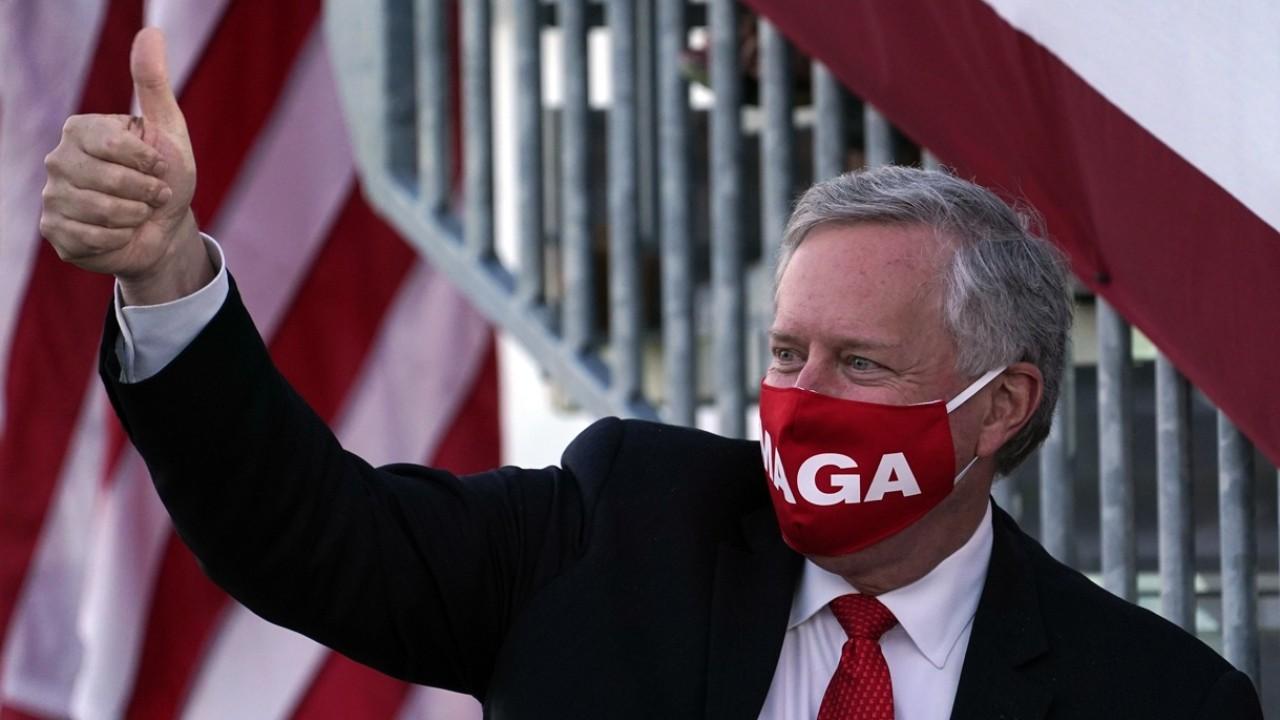Congress may not pass coronavirus relief deal until after Election Day, top negotiators say
Time is running out for Congress to pass a coronavirus relief deal
White House officials and Democratic leaders suggested this week that Congress may not pass a coronavirus relief deal until after the November election.
House Speaker Nancy Pelosi and Treasury Secretary Steven Mnuchin have continued to narrow their differences on a $2 trillion aid package during multiple discussions this week, a Pelosi spokesperson tweeted Wednesday. But even if they strike a deal before Nov. 3, the legislation faces little chance of passing amid an increasingly tight timeline and mounting opposition from Senate Republicans.
TRUMP SAYS HE WANTS A BIGGER CORONAVIRUS RELIEF PACKAGE THAN PELOSI'S $2.2T PROPOSAL
Asked Thursday on MSNBC whether there could be a deal before the election, Pelosi said: "We could do it in the House. You hear what the leader in the Senate is saying, but that's really up to the president. We're negotiating with him. We've made progress, and I have to say we've made progress in this regard."
Larry Kudlow, a top economic adviser to President Trump, echoed that sentiment last week during an interview with FOX Business, warning that it would be "almost impossible" to executive a relief package before the election, even if Congress overcame a monthslong impasse and reached an agreement on more aid.
"Maybe some of it could be executed," he said. "But you certainly couldn't get a grand, large deal."
Kudlow said Wednesday on CNBC that a relief package during the lame-duck session, after the election but before the next administration starts, "could be a possibility."
Still, White House chief of staff Mark Meadows acknowledged the difficulty of passing legislation after Nov. 3, particularly with the White House and Senate both up for grabs this year.
“I don’t think our chances get better after election," Meadows said on Fox News. "I think the next 24 to 48 hours will tell us a whole lot.”
Democrats and Republicans sharply disagree over the size and scope of another relief bill and are billions of dollars apart in their proposals, unable to reconcile key policy differences on issues such as a virus testing plan, aid to state and local governments and tax cuts for low- and middle-income families.
The White House most recently proposed an aid package worth $1.8 trillion — its most expensive offer to-date — but Trump has repeatedly indicated that he would consider a package with an even bigger price tag than Democrats' $2.2-trillion package.
Pelosi told reporters Wednesday that she hoped to finalize a bill by the end of the week: "That's the plan. That's what I would hope," she said.
But with less than two weeks until the election, key hurdles still remain, including funding for state and local governments and growing dissent among Senate Republicans, who have balked at passing a multitrillion-dollar aid package.
MCCONNELL URGES WHITE HOUSE NOT TO MAKE VIRUS RELIEF DEAL WITH PELOSI
Senate Majority Leader Mitch McConnell has also emerged as an obstacle in negotiations, privately urging the White House not to settle with Pelosi before the election amid concerns it could interfere with the confirmation of Amy Coney Barrett to the Supreme Court, two sources told Fox News.
For months, Congress has struggled to reach an agreement on another round of emergency relief for families and businesses — negotiations first collapsed in early August, prompting Trump to sign four executive measures intended to provide relief to families still reeling from the virus-induced crisis, including temporarily extending supplemental jobless aid at $300 a week.
But that aid is beginning to expire, and lifelines that propped up the economy in the early weeks of the pandemic — like the $670 billion Paycheck Protection Program, a one-time $1,200 stimulus check and sweetened unemployment benefits — lapsed months ago.
Senate Democrats blocked the GOP's $500 billion proposal on Wednesday that included another round of funding for a key small business rescue program, money for schools, liability protections for businesses and boosted unemployment benefits.
Fox News' Marisa Schultz contributed to this report.




















